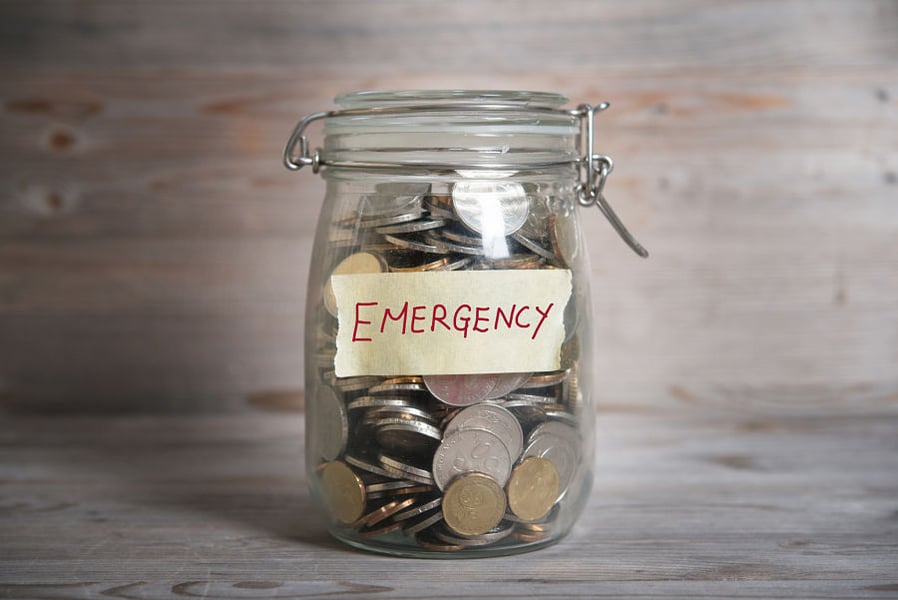

Whether it’s money for something fun — like buying an RV to travel the country to see their children — or something painful — like replacing their roof — individuals often require emergency savings, but they tend not to think about it until they need it.
“Most clients don’t see it as a concern until it’s too late,” said Cameron Valadez, partner at Planable Wealth. “We always recommend having an emergency fund, whether they need it or not.”
If an emergency fund isn't in place, clients often want to pull money from pretax retirement accounts, which can be costly.
“They typically don’t think about the ramifications of doing that,” Valadez said.
He encourages clients to build an emergency savings fund that they can draw from to cover planned expenses, such as a new vehicle, and that would cover three to eight months of living expenses, such as mortgage. Such a fund also should be big enough to give them a cushion against a possible market downturn at the onset of retirement.
Herschel Clanton, founder of Chancellor Wealth Management, encourages retired clients to have at least $10,000 in a bank account for emergencies. Those funds should be drawn from normal retirement sources, such as a pension, Social Security, a required minimum distribution or a planned withdrawal from an IRA or brokerage account.
Without an emergency fund in place, his clients have to take additional distributions from retirement accounts or take on credit card debt — moves that can diminish retirement security.
“If you don’t have an emergency fund, when there are one-off events, it’s another withdrawal from their retirement resources,” Clanton said.
A lack of emergency savings has become a major source of stress for Americans, according to a Fidelity Investments report released Thursday. Fidelity found that participants in workplace retirement plans sponsored by the firm rank emergency savings as their primary savings goal after retirement.
Inflation, market volatility and the pandemic have made it harder to build emergency savings, and more than half of U.S. adults are unable to afford a $1,000 emergency expense, Fidelity said.
Federal workers are especially concerned about emergency savings given the potential government shutdown looming in November, said Wes Battle, financial planner at Financial Advantage Associates.
Battle’s practice is based in Rockville, Maryland, a suburb of Washington, D.C., and many of his clients work for the government. He counsels them to create a gap between their income and their expenses in order to build a financial cushion for unexpected events so that they don’t have to turn to costly bank loans or credit card debt.
“If you have an emergency fund, you become your own bank,” Battle said. “You loan yourself money.”
In the current interest-rate environment, clients are more inclined to put money in a savings account.
“With interest rates being higher now, it’s a little easier conversation to have,” Battle said.
Employers also are encouraging workers to build an emergency nest egg.
“The good news is many employers are stepping up to support the financial wellness of their workforce with emergency savings benefits,” Kevin Barry, president of Fidelity Workplace Investing, said in a statement. “This growing focus, coupled with recent legislation enabling employer involvement, is driving forward-thinking employers to help employees better prepare for those rainy days.”

The looming threat of federal funding cuts to state and local governments has lawmakers weighing a levy that was phased out in 1981.

The fintech firms' new tools and integrations address pain points in overseeing investment lineups, account monitoring, and more.

Canadian stocks are on a roll in 2025 as the country prepares to name a new Prime Minister.

Carson is expanding one of its relationships in Florida while Lido Advisors adds an $870 million practice in Silicon Valley.

The approval of the pay proposal, which handsomely compensates its CEO and president, bolsters claims that big payouts are a must in the war to retain leadership.
RIAs face rising regulatory pressure in 2025. Forward-looking firms are responding with embedded technology, not more paperwork.
As inheritances are set to reshape client portfolios and next-gen heirs demand digital-first experiences, firms are retooling their wealth tech stacks and succession models in real time.
